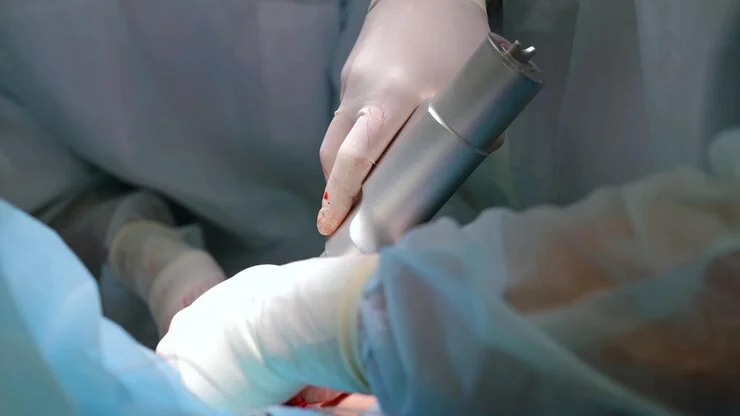-
BP Poddar Hospital
BP Poddar Hospital

Recovery After Soft Tissue Tumor surgery requires proper care, rest, and nutrition. Consulting one of the best surgical oncologists can help ensure a quick and effective healing process by providing personalized care and guidance throughout your recovery journey.

Soft tissue tumors can be benign (non-cancerous) or malignant (cancerous), and their surgical removal is often essential to prevent further health complications. While surgery is a critical step in treatment, the post-surgical phase—recovery after soft tissue tumor surgery—is just as important. A well-managed recovery ensures proper healing, reduces pain, and helps you regain your daily routine as quickly as possible.
Many people wonder what steps they can take to speed up recovery and avoid potential setbacks. In this guide, we will discuss essential tips, best practices, and key considerations to help you navigate your recovery journey with confidence and care.
Recovery after surgery isn’t just about waiting for wounds to heal. It involves:
Each patient’s recovery may vary based on factors like age, tumor size, general health, and the expertise of the surgical oncologist. By understanding the process and following the right recovery practices, you can significantly improve your healing outcomes.

To ensure a smooth recovery, here are practical tips you can follow:
Post-surgical instructions are tailored to your specific condition and surgery type. Following them precisely will minimize risks and promote faster healing.
Neglecting these instructions may lead to setbacks like infections or delayed healing.
Nutrition plays a significant role in recovery after surgery. Your body needs essential nutrients to repair tissues and regain strength.
Avoid processed foods and sugar, as they can slow down healing and cause inflammation.
Rest is critical during recovery. Sleep is when your body repairs itself most effectively, so aim for:
Try to avoid excessive physical or mental stress, as stress hormones can delay the healing process.
While rest is important, inactivity for long periods can cause stiffness, blood clot risks, and delayed recovery.
Over time, this approach will improve circulation, prevent stiffness, and help you regain mobility.
Pain is a common part of recovery, but it should not be ignored. Proper pain management helps you stay comfortable and active.
If your pain worsens or persists, consult your doctor immediately.
Wound care is a vital part of recovery after soft tissue tumor surgery. Proper care can help you avoid infections or scarring.
Any unusual symptoms should be reported to your doctor promptly.
The emotional aspect of recovery is often overlooked but equally important. Surgery and its aftermath can feel overwhelming, so focus on maintaining a positive mindset.
Remember, recovery takes time. Be patient and kind to yourself as your body heals.
Recovery outcomes are significantly influenced by the expertise of your surgical oncologist. A skilled and experienced surgeon ensures:
If you’re undergoing surgery for soft tissue tumors, consulting the best surgical oncologist can make all the difference in your treatment and recovery journey.
Also read:- Soft Tissue Tumors: Types, Risk Factors, and Advanced Surgical Treatments
To summarize, focus on these key areas for a quick and effective recovery:
By balancing all these aspects, you can minimize discomfort and speed up your healing process.

Recovery time depends on the size and location of the tumor and your overall health. Most patients recover within 6-8 weeks, but full healing may take up to a few months.
You can resume light activities like walking after a few days. However, avoid heavy lifting and strenuous tasks until cleared by your doctor.
Keep the wound clean and dry, change dressings as advised, and watch for signs like swelling or redness. Contact your doctor immediately if you notice any unusual symptoms.
Some pain is normal after surgery. It can be managed with prescribed medications, ice packs, and rest. If the pain persists, consult your doctor.
Focus on protein, vitamins, and minerals for healing. Include foods like fish, eggs, leafy greens, citrus fruits, and whole grains in your diet.
Recovery after soft tissue tumor surgery is a gradual process that requires care, patience, and consistency. By following your doctor’s instructions, maintaining a nutritious diet, staying active, and managing pain effectively, you can ensure a smooth and speedy recovery.
Equally important is consulting the best surgical oncologist in Kolkata, who can guide you through both surgery and post-surgical care. Their expertise will help you navigate your recovery journey with confidence. Remember, healing is a journey, and taking small, consistent steps will lead you to a full recovery.
Take care of your body, prioritize your health, and focus on rebuilding your strength one day at a time. Your well-being is worth the effort.

January 30, 2025

January 29, 2025

January 28, 2025